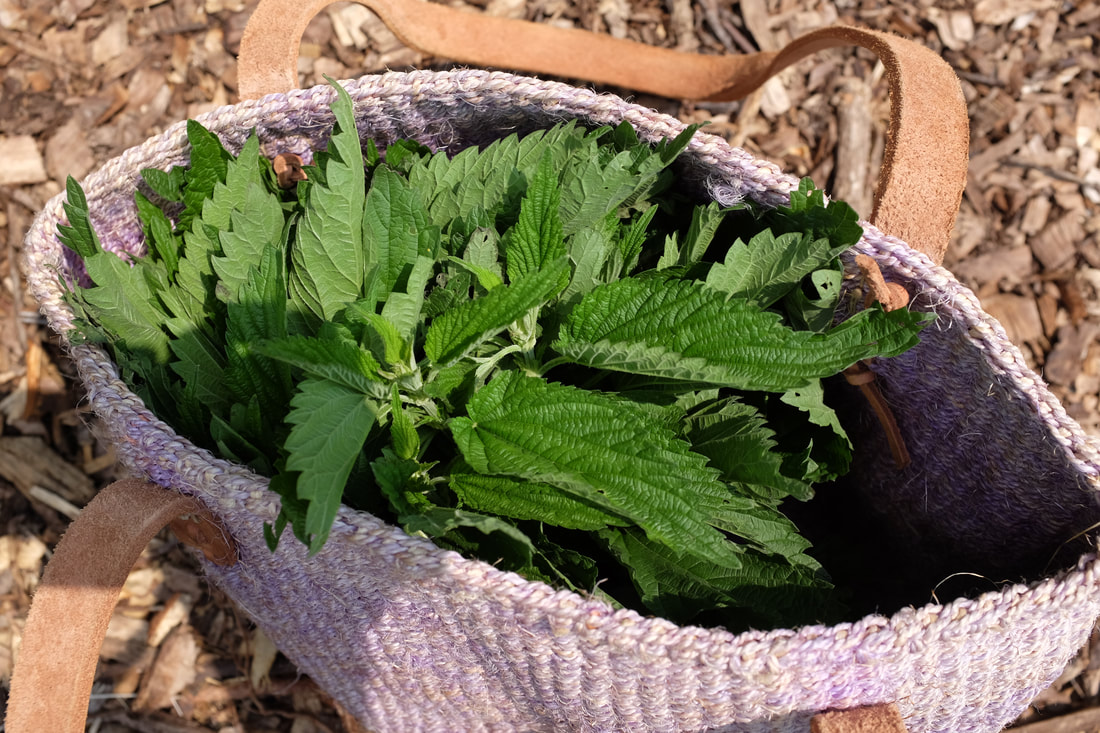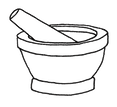|
By Nick Cavanaugh
During the springtime many people start experiencing seasonal allergies. And many others experience allergies year-round. What are the underlying reasons for these allergies, and what are the options for relief? I'll be exploring these questions in this article. I hope it's helpful - please reach out if you have any questions! What are allergies? Allergic rhinitis is an inflammation of the lining of the nose, usually characterized by one ore more of:
Perennial (year-round) allergies may be due to dust, mold, cockroaches or animal dander.[1-2] About pollen, mold and other allergens Respiratory allergies are often triggered by:
In Vermont, during "mud season" (the bridge between winter and spring), the dampness could lead to mold growth and mold allergies. Increased rainfall, humidity or flooding could contribute to this.[4-1][5] However, in many areas mold growth typically peaks in the summer due to the combination of both heat and humidity, especially the Midwest and Southeast U.S..[6][5-1] A damp autumn could continue to spur mold growth, though cold temperatures decrease mold activity and mold tends to become most dormant during the winter.[5-2] If you believe you may be sensitive to mold and are exposed to it, addressing this with indoor air quality is very important. Why do people get allergies? Allergies are basically a hype-reactivity of our body's immune systems. Ordinarily a strong immune response keeps our body healthy, but an over-activity to allergens causes harmful and uncomfortable inflammation in the nasal passageways. Herbalists have some unique insights into why allergies may be relatively common in our modern day-and-age:
An herbalist's view - herbal energetics and allergies From the herbalist perspective, symptom patterns can be differentiated in terms of patterns that correlate with key "energetic" states, especially heat, cold, dampness and dryness. In Unani ("Greek") medicine (also known as "Tibb") allergic rhinitis results from an excess of heat, which is either with dampness or dryness. This leads to irritation and inflammation in the mucous membranes.[2] Herbalists typically assess energetics of symptom patterns through various means, and we recommend speaking with an herbalist if you'd like to find out what pattern matches your experience. It can be especially helpful to get an outsider's perspective given that often symptoms can point to patterns in conflicting or confusing ways. However, for a general overview, these are some common associations with upper respiratory symptoms as detailed by herbalist Jim McDonald in an excellent article on sinus health: Signs of dampness:
Signs of dryness:
Signs of things being stuck and stagnant, more of a chronic condition, i.e. chronic sinusitis:[10-8]
To address these various symptom patterns, herbalists may incorporate some of the following (again as detailed by Jim McDonald, mostly): How to address dryness:
How to address dampness:
Remedies for stuck and stagnant states:
Natural allergy relief with home remedies The following are general suggestions. We recommend speaking with an herbalist for individual support and guidance. Tend to the indoor air environment and reduce exposure
Make dietary changes According to Mills and Bone in their authorative Principles and Practices of Phytotherapy "herbalists believe that diet can create a state of hypersensitivity and catarrh of the mucous membranes that predisposes to rhinitis." [1-3] Possible dietary factors could include:
Dietary steps to take
Use topical remedies
Seek ways to de-stress and get good sleep These can go a very long way in reducing allergy symptoms. Talk to an herbalist if you need support. Herbs to support our bodies Ideally someone would start their remedies 6 weeks before the season starts and continue it through the season.[1-6] We strongly advise talking to an herbalist for individual advice on how to support your body during allergy season. These are some of the ways herbs are used: Healthy mucous membranes Mills and Bone state that "traditional herbalists have stressed the importance of healthy upper respiratory mucous membranes." [1-7] Demulcent herbs such as marshmallow can help to soothe dryness and irritation in the upper respiratory tract. Astringent herbs such as elderflower can help to dry up copious nasal discharge. Immune support Immunomodulating herbs such as reishi mushroom can help to modulate the immune response over time, helping to prevent either under or over-activity of the immune system.[8-1] Reishi is not advisable for some individuals: talk to an herbalist for advice. Support detoxification pathways Herbs such as nettles, dandelion and burdock can help to support our body's natural detoxification pathways, i.e. through the lymphatic system or liver, and this in turn can help reduce background levels of inflammation and promote clearing of foreign substances from the body. Medical treatment for allergies From the herbalist point of view it's better to address underlying causes rather than symptoms. However, when needed there are a number of medications that can help. Over the counter medications can help relieve allergy symptoms:[11]
When to contact a doctor:[11-1]
Closing Sesonal allergies can be tough - I hope this has been helpful information for you! Please contact me with any questions, and feel free to reach out if you'd like to schedule an herbal consultation. Be well! By Nick Cavanaugh. Nick is a clinical herbalist at Railyard Apothecary. Learn more about Nick and other clinicians here. References
4 Comments
Nick
5/19/2022 12:01:35 pm
So glad you enjoyed it! Thanks for sharing, and let us know if you have any questions about anything.
Reply
Nick
6/16/2022 07:58:40 am
Hi Lexynne, thanks for the feedback! Glad that it was helpful! Will do! :)
Reply
Leave a Reply. |
Details
RAILYARDCheck in here to keep updated on news and activities at the apothecary. Archives
April 2024
Categories
All
|
railyard apothecary
*These statements have not been evaluated by the Food and Drug Administration. This product is not intended to diagnose, treat, cure, or prevent any disease. For educational purposes only.
|
|


 RSS Feed
RSS Feed
